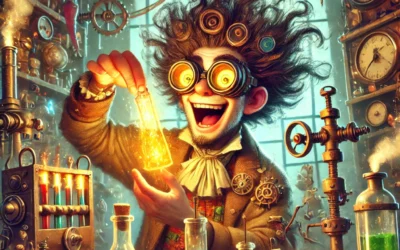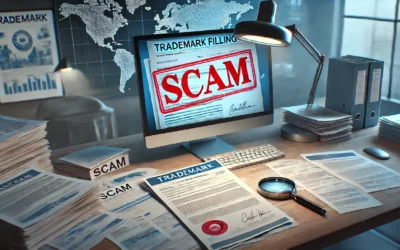The year is coming to an end again and it’s a good time to review the highlights and trends of the past year. A lot has happened in the world of trademarks and IP. Most notably, there has been a lot of talk about generative AI and intellectual property. Here is a brief overview of some events and trends of the year in the trademark world. Here’s the end-of-year trademark round-up for 2023.
1. Metaverse and NFTs
One of the biggest phenomena has been the metaverse and NFTs. This trend has been reflected in trademark applications. The EUIPO (EU Intellectual Property Office) has issued its guidance on the classification of goods and services, and the EUIPO’s 2023 examination manual includes a whole section on virtual goods and NFTs.
Courts have also started having cases where physical and virtual products collide. The case that has received the most publicity is a case in which a US court found that Mason Rothschild had infringed Hermès’ rights to the trademark BIRKIN by selling MetaBirkin NFTs on an online marketplace.
Read more:
EUIPO’s new practice tips for metaverse, NFTs and virtual goods
Are your trademarks ready for the metaverse?
2. Twitter’s rebranding to X
Twitter surprised the world in the summer of 2023 by announcing that it would be abandoning the Twitter brand. From a trademark perspective, brands consisting of a single letter can be challenging. They may often be considered non-distinctive, in which case the exclusive rights given by the trademark relate only to a particular graphical expression of the letter.
In the EU, it is possible to obtain a trademark right even for a single letter, provided that the letter does not describe the goods or services in question. For example, the letter M is commonly used in the context of clothing to indicate the size of a garment, so it could not function as a trademark. Another challenge with trademarks consisting of a single letter is that their scope of protection is very narrow. We do not generally recommend trademarks consisting of a single letter.
Read more:
Can you protect single letters as trademarks?
Need to rebrand? Here’s what you need to know
3. AI and IP
ChatGPT came to the attention of the general public in early 2023. As a result, a lot has been written about the copyright of materials created by tools like ChatGPT. In Europe and the United States, the prevailing view is that copyright requires the work to be created by a natural person. Therefore, works created by generative AI (writings, images, presentations, compositions, etc.) are not protected by copyright. In addition, it is also important to note that if you use works created by AI, they may infringe the rights of others. It’s important to check the terms and conditions of the use of AI services, especially concerning possible limitations or restrictions on how the material generated by the service can be used.
Even though ChatGPT is an excellent tool, there are also significant risks associated with its use. For example, it often provides completely incorrect information about trademarks and copyrights. So you should never blindly trust its advice. However, it is excellent at certain things. For example, it can generate endless name suggestions for a new product. The key is to know what it is good for.
Read more:
Artificial intelligence and intellectual property – what you should know
Can ChatGPT replace your trademark attorney?
4. SME Fund continued to successfully support SMEs
The SME FUND, founded by the European Commission, again distributed 25 million euros to European SMEs to protect their trademarks.
Many of you have also taken advantage of the fund, some even twice. We expect that the fund will continue next year as well. We will let you know as soon as we have more information. We estimate that the application period for funds will open sometime in late January 2024.
Read more:
Another study confirms the link between IP ownership and funding
Protect your IP before the first funding round to get more money – here’s why that works
5. The war in Ukraine
When Russia invaded Ukraine in 2022, many companies announced that they would be ceasing operations in Russia. Russia, in turn, announced that it would no longer respect the trademarks of such companies, and would allow locals to use them freely.
Despite the fact that many companies announced that they would be leaving Russia, many of them have nevertheless filed a huge number of trademark applications in Russia. Among the companies that have filed the most applications since the war began are L’Oreal, Apple, and Huawei.
A significant challenge for companies that have left Russia is that if a registered mark is not used for three years, it can be revoked for non-use. If non-use is due to a compulsory reason, such as economic sanctions, it will not be taken into account. However, if the company leaves voluntarily, it will be exposed to the loss of rights due to the non-use of the marks three years after the mark has not been in use in Russia.
Read more:
What companies are filing the most trademarks in Russia?
How does Russia’s attack against Ukraine affect intellectual property?



